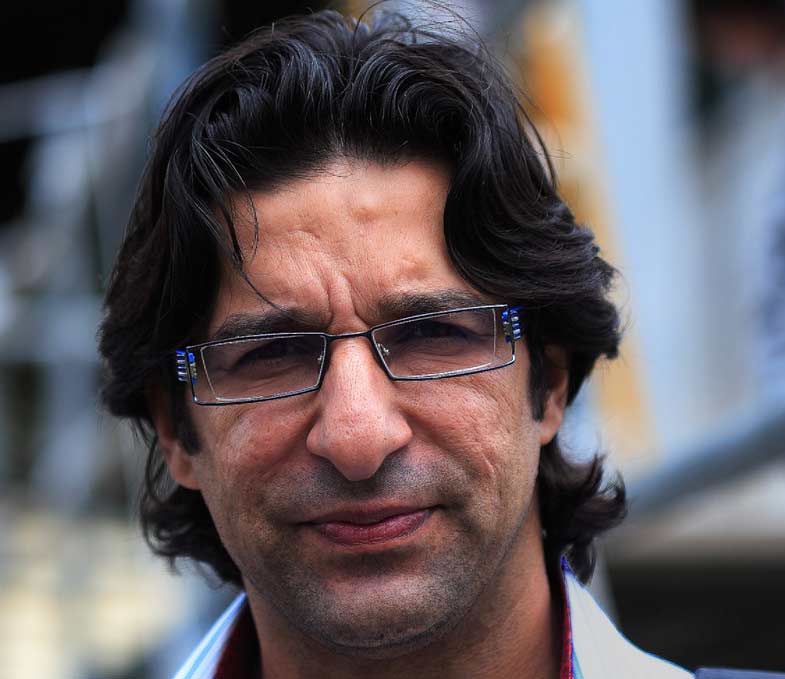Wasim Akram's Age & Life: All You Need To Know - 2024
Is it possible for a cricketer, initially overlooked, to become a legend, revered globally for his skill and impact? The story of Wasim Akram, born in Lahore, Pakistan, on June 3, 1966, proves unequivocally that it is. From humble beginnings, he ascended to become one of the most celebrated bowlers in cricket history, a testament to his unwavering dedication, exceptional talent, and the transformative power of the sport.
His journey is a compelling narrative of resilience, skill, and the pursuit of excellence. Akram's influence on the game extends beyond mere statistics; he redefined fast bowling with his mastery of reverse swing, a technique that baffled batsmen and elevated his status to that of an icon. His career, spanning from 1984 to 2003, saw him dominate the cricketing world, leaving an indelible mark on the sport's landscape.
| Full Name: | Wasim Akram |
| Date of Birth: | June 3, 1966 |
| Place of Birth: | Lahore, Pakistan |
| Age: | 58 years old (as of November 15, 2024) |
| Height: | 1.92 m |
| Weight: | 91 kg |
| Batting Style: | Left-handed (Lower Order) |
| Bowling Style: | Left-arm fast-medium |
| Role: | Former Pakistani Cricketer, Coach, Commentator |
| Marital Status: | Married to Shaniera Thompson |
| Nickname: | Sultan of Swing, Waz |
| International Debut: |
|
| Teams: |
|
| Test Career: |
|
| ODI Career: |
|
| Notable Achievements: |
|
| Current Role: | Cricket commentator and coach. Actively involved with the Akram Foundation. |
| Reference: | ESPNCricinfo - Wasim Akram |
His story began in Lahore, where, despite initially struggling to make his mark, a keen eye for talent in Javed Miandad recognized his potential. Akram's journey didn't immediately follow a predestined path of glory. He was not an overnight sensation; indeed, he was overlooked for the college team. This early setback, however, served as a catalyst. It fueled his determination and provided the impetus for the dedication that would later define his career.
The trials at Gaddafi Stadium were his moment. His natural talent, combined with his unwavering commitment, propelled him forward. The 1992 World Cup, a defining moment for Pakistan cricket, showcased Akram's brilliance to the world. He played a crucial role, his performance echoing the sentiments of the whole nation. He wasn't just a bowler; he was a match-winner, a leader, and a symbol of Pakistani cricketing pride.
Akram's dominance wasn't limited to any specific format. He took four hat-tricks in international cricket, demonstrating his consistent ability to perform under pressure. In test cricket, he reached the pinnacle of batting with the highest score by a number eight batsman with an unbeaten 257 runs. In the one-day international format, he was equally prolific, taking the most wickets at the time of his retirement. His 502 wickets in ODIs established him as a record holder and cemented his reputation as a master of the craft.
His expertise in reverse swing, a skill he honed and perfected, became his trademark. This technique, a deceptive art form that could make the ball curve dramatically in the air, baffled even the most seasoned batsmen. He possessed an uncanny ability to read the conditions, adjust his line and length, and exploit the weaknesses of the opposition. The Sultan of Swing, as he was affectionately known, was a master of his craft, capable of weaving spells that could turn the tide of any match.
Beyond his on-field accomplishments, Akram's personality and charisma have made him a popular figure around the world. His name is now synonymous with cricket excellence, with the skill to get the ball to move in two different directions in the air, making it nearly impossible for batsmen to score runs. He is a symbol of Pakistani excellence. He is a cricket commentator and coach, and he inspires the young players to work hard to achieve something bigger than themselves. He currently works as a cricket commentator and coach in Pakistan. He played for the Pakistan national cricket team from 1984 to 2003.
His impact extends beyond the boundary ropes. He is a role model, both on and off the field. The Akram Foundation, led by his wife, Shaniera Thompson, actively engages in social work and philanthropic endeavors. This commitment to giving back to society amplifies his legacy, showcasing his compassion and dedication to making a difference beyond the realm of cricket. Shaniera Thompson, his second wife, is a prominent figure, often appearing in media and supporting various charitable causes.
Shaniera Thompson, is 17 years younger than him and the couple is married since August 12, 2013. She has become a cultural bridge, representing Pakistani culture, and actively participates in community service initiatives. Through her, the world sees the values that Wasim Akram believes in.
The combination of his skills, his personality, and his dedication has turned him into one of the greatest players ever, and the story of Wasim Akram continues to evolve. The name is associated with the cricket game to this day, inspiring and influencing people and players throughout the world.
His story provides valuable insights into the principles of resilience, unwavering dedication, and the pursuit of excellence. It is a testament to the fact that, with the right approach, any goal, no matter how seemingly insurmountable, can be achieved. The narrative of his journey continues to inspire cricketers and fans alike. As he continues to contribute to the game, either in the commentators' box or through coaching, he solidifies his place as a true icon of the sport.
Wasim Akrams legacy goes far beyond the cricket field. His dedication and achievements have set an example for many. He has become a symbol of inspiration, demonstrating that with determination and passion, it is possible to achieve greatness.


